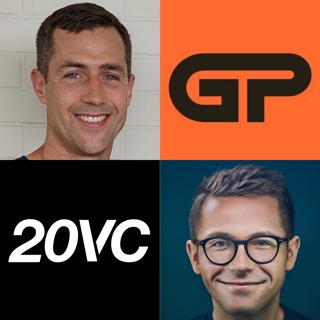
20VC: The Services Model of Venture Capital is Broken, The Best Founders Do Need Help, The Most Important Signals to Assess When Meeting Founders & Why Kids Bring Less Happiness and More Joy with Phin Barnes @ TheGP
Phin Barnes is the Co-founder and Managing Partner of The General Partnership (TheGP), a venture capital firm that’s redefining what partnership means for founders. Previously, Phin spent over a decade at First Round Capital, where he was responsible for over 60 investments including Blue Apron, Notion, Clover Health, Gauntlet and Persona. Before First Round, he created an independent video game company and before that was an early employee at AND 1 Basketball where he helped scale the brand from $15 to $225 million in revenue and served as the Creative Director for Footwear. In Today's Episode with Phin Barnes We Discuss: From Creative Director to Venture Capitalist: How did Phin make his way into the world of venture having been a Creative Director at a basketball brand? What does Phin know now that he wishes he could tell himself on his first day in venture? What are 1-2 of Phin's biggest lessons from his 10 years at First Round which shapes how he invests? 2. The Venture Capital Model is Broken: Why does Phin believe the current services model of venture is broken? Do the best founders need your help? What have been some of the biggest lessons in what the best founders want from their VCs? What happens to this generation of firms with massive support teams? Do VCs use these support teams merely to justify massive fund size scaling to LPs? 3. The Venture Landscape Today: How can we compete in a seed landscape of $5M on $25M against large multi-stage firms? What founders types are attracted to big brands? What founder profiles are taken in by large rounds and high prices? Is Phin more or less excited about seed-stage investing now than he has been before? 4. Investing Lessons 101: What is Phin's biggest hit? How did seeing their success impact his mindset? What is Phin's biggest loss? How did the loss impact how he views investing? Traction, team, market; how does Phin rank the three in prioritisation? What should all young people know when entering the venture landscape?
2 Okt 20231h 1min
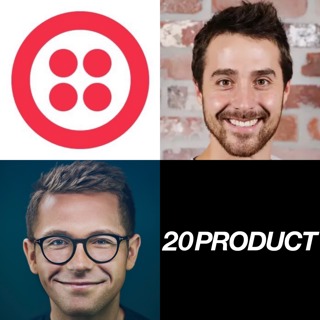
20Product: Why Product Memes Are More Important Than a Product Roadmap, Why Writing is the Essential Skill for Product People, How AI Changes The Role of Product, Big Mistakes Founders Make When Hiring Product Teams with Kevin Niparko, VP Product @ Twilio
Kevin Niparko is the VP of Product @ Twilio. Kevin joined Twilio through the acquisition of Segment where he spent an incredible 8 years in numerous different roles including as Head of Product. Before entering the world of product, Kevin was a Management Associate at the world-renowned, Bridgewater Associates. In Today's Episode with Kevin Niparko We Discuss: 1. From Bridgewater to Head of Product: How Kevin made his way from the world of asset management and analytics to leading product teams? What are 1-2 of Kevin's biggest takeaways from his time at Bridgewater with Ray Dalio? How did the 8 year journey with Segment leading to their $3BN acquisition impact his approach to product? 2. What Makes a Great Product Person: Does Kevin believe that product is more art or science? If he were to put a number on it? What would it be out of 100? Why does Kevin believe that all product people should learn to write? Why does Kevin believe that the best product people are generalists and not specialists? Why does Kevin think that analytics is an insanely good start for product people? 3. How to Hire the Best Product People: How does Kevin approach the hiring process for product hires today? What are the non-obvious traits of hires he looks for? How does he test for them? Does Kevin use case studies? Where do many fall down? What do the best do? 4. Product Reviews: Good vs Great: How often does Kevin do product reviews? Who is invited? How have product reviews changed in a world where the company is now fully remote? What is the difference between good and great product reviews? What is the single best product decision Kevin has made? What did he learn? What is the worst product decision Kevin made? How did that change his approach?
29 Sep 202346min
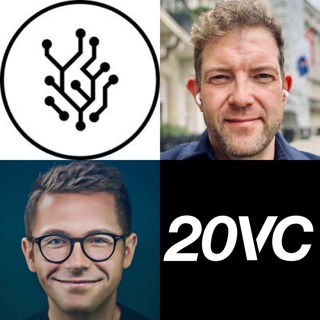
20VC: "How Being a Founder Almost Killed Me"; We Have Lied to a Generation of Founders | The Hardest Truths About Being a Founder Revealed | Why AI Co-Pilot is BS, Seat Pricing is Over & User Interfaces are Stupid with Christian Lanng
Christian Lanng is the Founder and Former CEO @ Tradeshift, a company he took from garage to unicorn raising over $900M for with a latest price of $2.7BN in 2021. Just last month, Christian stepped away from the company and is now Chairman @ Beyond Work, building a better work experience through AI native software. In Today's Episode with Christian Lanng We Discuss: 1. Burnout: When it Hits: How did Christian know when something was really seriously wrong? What were the signs? How did being a founder literally almost kill Christian? How was that not a wakeup moment? How does being a founder make you so out of touch with reality? 2. The Things We Are Never Told: Why does Christian think one of the biggest crimes is the myth that everyone can be a founder? What are the single biggest things about VCs that founders are not told? Why does Christian believe fundraising is absolutely a game? What are the rules to win it? What makes the best VCs? What makes the worst VCs? Why does Christian not like to take a discount for a brand name VC? 3. The Chaos That Happens Inside a Company: Why does Christian believe politics should not be discussed within companies? What are Christian's biggest lessons on working with friends? Why after 14 years does Christian only have 3 friends that still talk to him? How did Christian fire 50% of his leadership team and productivity not change at all? Why does Christian believe US startups are inherently better than European ones? 4. Parenting and Relationship to Money: Does Christian regret not being a present father for his child when building Tradeshift? What are the two options as a founder you have when bringing up kids? Was Christian scared to leave Tradeshift? How does he reflect on his relationship to money? 5. AI: Co-Pilot is BS, The Future Business Model and more... Why does Christian believe co-pilot is the last dying breathe attempt from incumbents? Why does Christian believe that per-seat pricing will die? What will replace it? Why does Christian believe that AI will negate the importance of consumer-facing brands? In what way does Christian believe that UI is total BS? How does it change over time?
27 Sep 20231h 9min
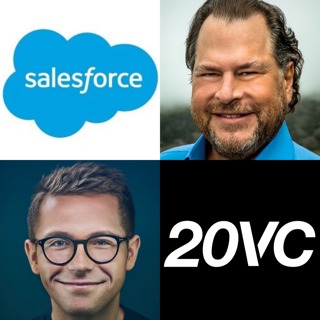
20VC: Marc Benioff on The Future of San Francisco and What He Would Do if in Charge? Marc Benioff's Five Step Process to Priorities and Why Money Does Not Make You Happy & Work From Home vs In-Person; How to Manage in Changing Worlds
Marc Benioff is Chair, Chief Executive Officer and Co-Founder of Salesforce and a pioneer of cloud computing. Under Benioff's leadership, Salesforce is the #1 provider of CRM software globally and one of the world's fastest-growing enterprise software companies. Benioff founded Salesforce in 1999, and it is now a Fortune 150 company with 70,000+ employees. Benioff is the owner and co-chair of TIME, and the founder of TIME Ventures. Benioff is the author of the New York Times bestseller Trailblazer: The Power of Business as the Greatest Platform for Change. Benioff was named “Innovator of the Decade” by Forbes and is recognized as one of the World’s 25 Greatest Leaders by Fortune. In Today's Episode with Marc Benioff We Discuss: 1. The Future of San Francisco: What would Marc do if he were in charge of San Francisco today? What would he change with regards to housing, policing and crime? Why does Marc believe there are doomsday proclaimers on SF? What do they have to gain? Will Dreamforce always be held in San Francisco? 2. Money and Ambition: The Mind Behind a $200BN Machine Does Marc believe that money makes you happy? How has Marc's relationship to money changed over time? How does Marc think about bringing children up in a more affluent home? What does Marc advise anyone who is seeking "happiness" today? 3. Mastering Decisions and Prioritisation: How does Marc assess his own decision-making framework today? Has it changed with time? What is Marc's 5 step process to understand your own priorities today? What does Marc believe are the three biggest priorities for Salesforce today? What are the single biggest blockers that would prevent Salesforce from achieving their goals? 4. Marc Benioff: AMA: What does great fatherhood mean to Marc? Who would win the cage fight, Zuck or Elon? What does a day in the life of Marc Benioff look like? What does Marc think about work from home?
25 Sep 202332min
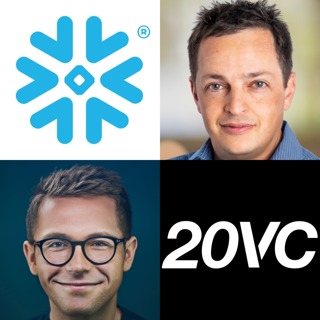
20VC: Are Foundation Models Becoming Commoditised? Do OpenAI and Anthropic of the World Have a Sustaining Moat? Why Smaller Models May Work Better? Why Incumbents with Data Power Win the AI War with Christian Kleinerman, SVP Product @ Snowflake
Christian Kleinerman is the SVP of Product @ Snowflake. Before Snowflake, Christian spent close to 5 years at Google as a Senior Director of Product Management @ YouTube working on their infrastructure and data systems. Before YouTube, Christian spent over 13 years at Microsoft serving as General Manager of the Data Warehousing product unit where he was responsible for a broad portfolio of products. In Today's Episode with Christian Kleinerman We Discuss: 1. Lessons from the Greats: How did Christian first make his way into the world of product? What are 1-2 of his biggest lessons from working with Satya Nadella and Frank Slootman? What are 1-2 of hs biggest product lessons from Google and Microsoft? 2. Generative AI: Real vs Fake: How does Christian analyze the current generative AI landscape? Which segments will be the fastest to adopt? Which will be the slowest? What aspects of the ecosystems are overblown? Which are under-appreciated? How does Christian respond to many VCs who suggest that many startups are simply wrappers on GPT? 3. Models 101: Why Size is Not Everything! What matters more, the size of the data or the size of the model? Will any of the models used today be used in a year? Does Christian believe Alex @ Nabla is right in saying that "the most successful companies will be those that are able to transition between models the easiest"? How are we seeing the evolution of model size impact the accuracy of result snad size of data required? 4. Incumbent vs startup & Open vs Closed: Who is best positioned to win; startups or incumbents? What are the nuances; which spaces are best served for startups to win vs incumbents? Will open or closed source be the dominant mode? What are the single biggest challenges preventing open from being successful?
22 Sep 202344min
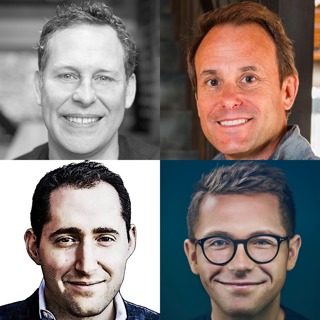
20VC Roundtable: Is the VC Model Broken? The Biggest Disconnect Ever Between TVPI & DPI, Why Market Size is Dangerous, Why "Go Fast" is Terrible Advice, The Dangers of Raising Large Rounds at High Prices & Why Next Year Will See the Biggest Hiring Spree i
Eric Paley is the Managing Partner at Founder Collective, one of the world’s most successful seed funds with investments in the likes of Uber, The Trade Desk, Coupang and Airtable. Mike Maples is one of the OGs of seed investing. As the Co-Founder of Floodgate, he has backed the likes of Twitch, Okta, Lyft, Twitter and more. Jason Lemkin is the Founder @ SaaStr one of the best-performing early-stage venture funds with a portfolio including Algolia, Pipedrive, Salesloft, TalkDesk, and RevenueCat to name a few. In Today's Episode on Is the Venture Model Broken? : Is the classic seed model dead? Can seed funds play in a world of $25M valuations? Why is having a firm grasp of the present the best thing an early-stage investor can have? Why does Mike Maples believe no company with true product-market-fit has ever failed? Why does Eric Paley believe "go faster" is the worst startup advice? Why does Mike Maples believe there is a direct relationship between price and risk? Why does Mike Maples believe that outliers by their very nature are lower priced? Why does Eric Paley not focus on ownership? Why can it be dangerous? What are the biggest risks for founders raising at valuations that are too high? Why does Eric Paley believe we will have the biggest chasm between TVPI and DPI in the prior vintage of venture capital returns? Why does Eric believe the majority of SPACs were BS and great companies can always go public? Why does Jason believe that if multiples do not reflate, the venture model is broken? Why does Jason believe we will see the biggest hiring spree in tech next year? How has illiquidity allowed Eric Paley to make some of the best investment decisions? What is Mike Maples biggest lesson from selling Twitter stock early at $1BN?
20 Sep 20231h 17min

20VC: Benchmark General Partner, Miles Grimshaw on The Five Pillars of Venture Capital, Why Data Can Be a Trap When Early-Stage Investing, Investing Lessons from Missing Figma and Plaid & The New Business Model for AI & Why Co-Pilot is an Incumbent Strate
Miles Grimshaw is a General Partner @ Benchmark, widely considered one of the best venture capital firms in history. Prior to joining the Benchmark Partnership, Miles was a General Partner @ Thrive Capital where he led investments in Airtable, Monzo, Lattice, Github, Segment, Slack and Benchling to name a few. In Today's Episode with Miles Grimshaw We Discuss: 1. Straight into VC From University: From Yale to Thrive How did Miles come to land a role with Josh Kushner and Thrive right out of Yale? What are 1-2 of his biggest lessons from working with Josh @ Thrive for 8 years? What does Miles know now that he wishes he had known when he started in venture? 2. The Pillars of Venture Capital: Sourcing, Selecting, Servicing: What does Miles believe are the 5 core pillars of successful venture capital? 1-5, what is his strongest and what is his weakest? Does Miles really believe that VCs add value today? What are the most clear ways that Miles have seen VCs destroy value in portfolio companies? 3. Investment Decision Making: From Github to Segment: What is the single most important question that Miles has to answer to say yes to an investment? How does Miles think about both market sizing risk and market timing risk? What have been Miles' biggest hits? What did he learn from making those investments? What have been Miles' biggest misses? What did he learn from missing Figma and Plaid? What have been 1-2 of Miles's biggest lessons so far from working with Bill Gurley and Peter Fenton? 4. AI: What Happens Next: Does Miles believe we are in an AI bubble today? How does he assess the landscape? Why does Miles believe that the "Co-Pilot" strategy is an incumbent strategy? Where does Miles believe the value will accrue; the application layer or the infrastructure layer? What does Miles mean when he says the future is in "selling the work and not the software"? What business model disruption and adoption disruption does Miles believe AI will enable? Why does Miles believe that the analogy of AI to the rise of mobile is wrong?
18 Sep 20231h 20min
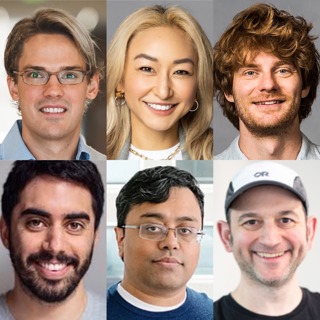
20VC: The Biggest AI Leaders on What Matters More; Model Size or Data Size & Where Does The Value in AI Accrue; to Startups or to Incumbents
Richard Socher is the founder and CEO of You.com. Richard previously served as the Chief Scientist and EVP at Salesforce. Douwe Kiela is the CEO of Contextual AI, building the contextual language model to power the future of businesses. Previously, he was the Head of Research at Hugging Face, and before that a Research Scientist at Facebook AI Research. Alex Lebrun is the Co-Founder and CEO of Nabla, an AI assistant for doctors. Prior to Nabla, he led engineering at Facebook AI Research. Alex founded Wit.ai, acquired by Facebook in 2015. Tomasz Tunguz is the Founder and General Partner @ Theory Ventures, just announced last week, Theory is a $230M fund that invests $1-25m in early-stage companies that leverage technology discontinuities into go-to-market advantages. Sarah Guo is the Founding Partner @ Conviction Capital, a $100M first fund purpose-built to serve “Software 3.0” companies. Prior to founding Conviction, Sarah was a General Partner at Greylock where she made investments in the likes of Figma, Coda and Neeva. Emad Mostaque is the Co-Founder and CEO @ StabilityAI, the parent company of Stable Diffusion. Stability are building the foundation to activate humanity’s potential. To date, Emad has raised over $110M with Stability with the latest round reportedly pricing the company at $4BN. Clem Delangue is the Co-Founder and CEO @ Hugging Face, the AI community building the future. To date, Clem has raised over $160M from the likes of Sequoia, Coatue, Addition and Lux Capital to name a few. Cris Valenzuela is the CEO and co-founder of Runway, the company that trains and builds generative AI models for content creation. To date, Cris has raised over $285M for the company from the likes of Lux Capital, Felicis, Coatue, Amplify, and Nvidia to name a few. Noam Shazeer is the co-founder and CEO of Character.AI. A renowned computer scientist and researcher, Shazeer is one of the foremost experts in artificial intelligence (AI) and natural language processing (NLP). The Two Most Pressing Questions in AI: What matters more the size of the model or the size of the data? Where does the value accrue in the next 5-10 years; to startups or to incumbents?
15 Sep 202331min






















